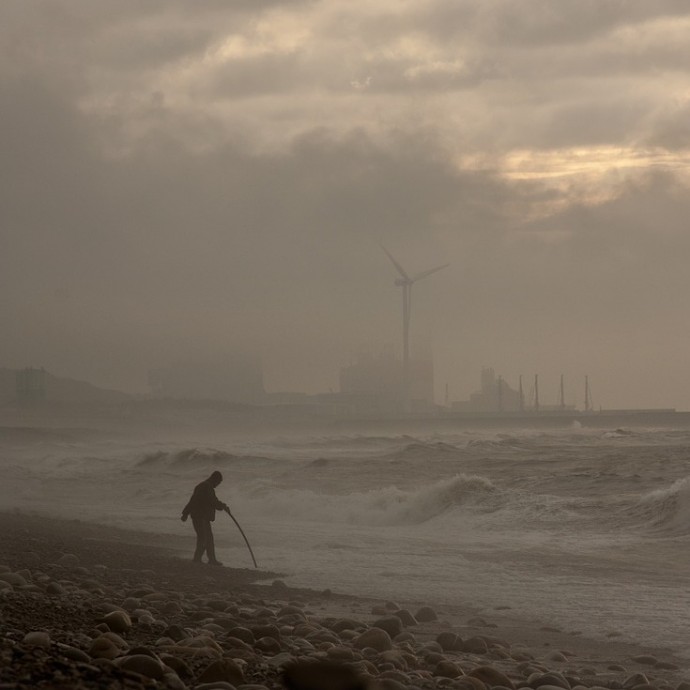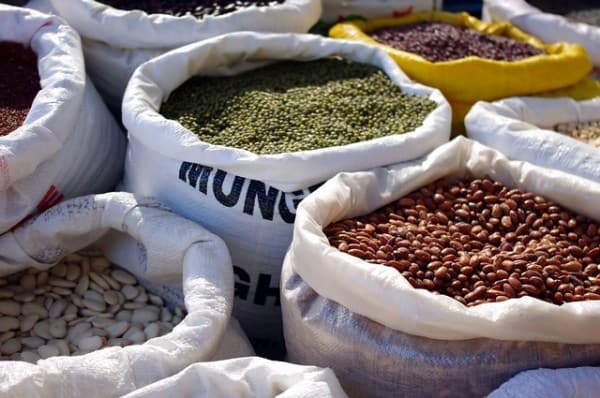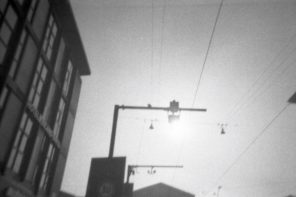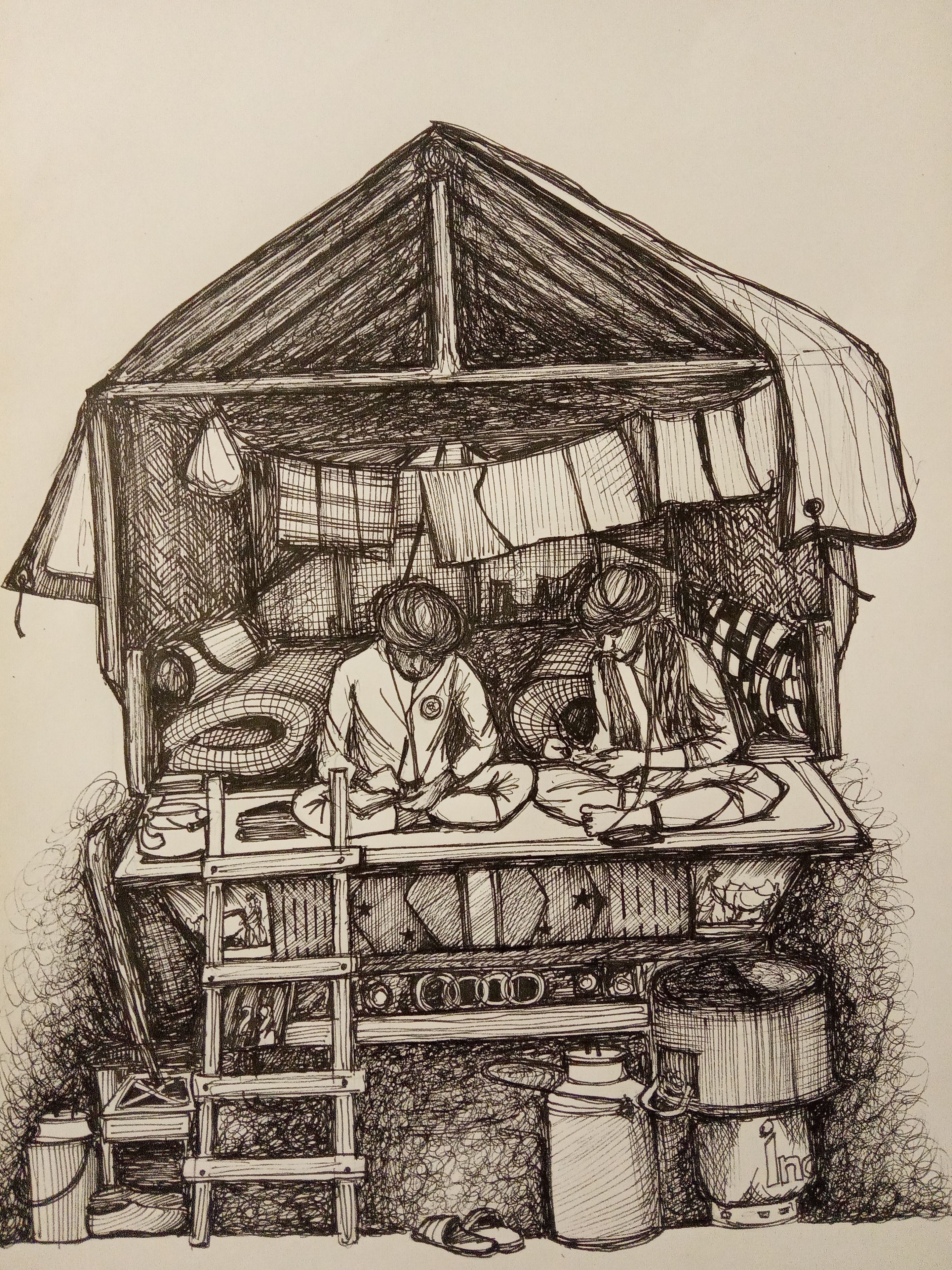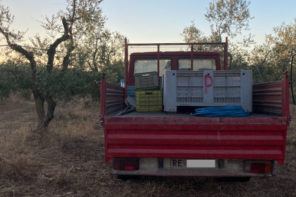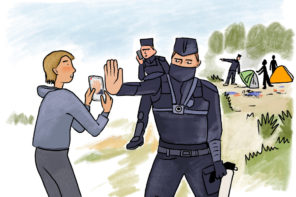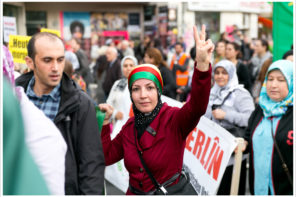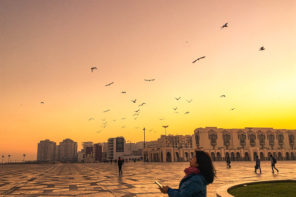This piece is a from-the-field reflection on the ways in which grand events and processes such as global financial crises and revolutionary upheavals come to intersect – often along surprising coordinates, temporalities, and scales – with people’s imagination of the possible. I draw on my present research on concepts of azma (crisis) and thawra (revolution) in emigrant areas of North Africa where migration to Europe has for decades inflected, if not constituted, “the possible” in both material and existential terms. In this piece, I share some preliminary reflections on how local cosmologies of migration seem to be interacting in complex ways with major events/processes taking place both on the opposite shore and in the neighbouring Middle East. I draw, in particular, on ethnographic material from emigrant Morocco, and, noting some of the subtle changes in recent years in the ways people here refer to “Europe”, “the West”, or more generally “the outside” (l-barra), I begin to reflect on the multi-scalar and multi-temporal “work” of crisis, revolution, and their aftermaths, on horizons of possibility.
Just country and crisis
“Italy is just country now” the girl sitting next to me on the bus rattling towards Casablanca comments bleakly. We boarded the bus together in one of the many towns of rural Central Morocco renowned since the late 1970s for its marked levels of emigration toward Southern Europe. My travel companion is on her way to the Italian Consulate in Casablanca to file her third, and – she is confident – finally successful visa application. Soon she’ll be living in Italy, she tells me. Her older sister, her younger sister’s husband, her paternal cousin, her maternal uncle, his two grandchildren…“kullhoum f l-barra”, they are all “in the outside”, she says. Up, down, and sideways: as often happens in this part of the world, “the outside” relentlessly criss-crosses the kinship diagram I try to picture in my head as she speaks of her family. But, today, it’s her turn to leave: “bssalama ciao ciao” [goodbye goodbye] she whispers with a wide smile. She then looks out of the window, and sighs: “the truth is, though…Italy is just country now…country and crisis…that’s all ‘the outside’ has become, my sister…”
My travel companion’s words surprise me. I have heard many times before negative, sarcastic, disillusioned comments being made in this region of Morocco about Italy, Europe, and “the outside” in general. These comments, however, are generally made with the shared understanding that, despite all its flaws, irrational bureaucratic systems and racist police, “the outside” (l-barra) is anyway better than “here” (hnaia), and is always a place worth dedicating one’s life to – and risking it for. In the emigrant region of Central Morocco where I have been conducting fieldwork since 2009, l-barra – literally “the outside” in Arabic, and the term used for “Europe”,or “the West” – is the beating heart of a whole topography, and cosmology, of migration. L-barra powerfully permeates local life and future dreams, conversations and political debates, daydreams and nightmares, wedding arrangements and religious consultations, romantic encounters and kinship relations (Elliot 2012).
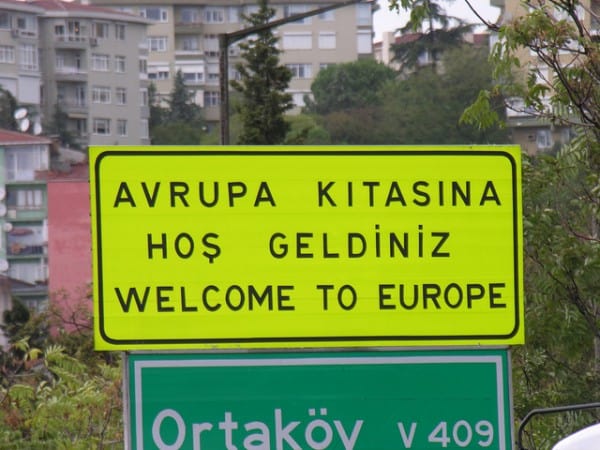
Photo by Pi István Tóth (flickr, CC BY-NC-SA 2.0)
The words spoken by the young woman sitting next me on the bus jar with the picture of “the outside” I have become accustomed to – a place of hope and possibility, of escape and wealth, of power and prestige. Referring to Italy as country (‘aroubia), casts “the outside” in a very different light indeed. Though encompassing different meanings, and not all of them negative, the term ‘aroubia has very specific connotations in Morocco. ‘Aroubia holds deep connotations of backwardness, illiteracy, coarseness. ‘Aroubi (peasant, or “from the country”) is generally used disparagingly, and immediately classifies someone as vulgar, ignorant, even animal-like. Interestingly, ‘aroubia is precisely the term used by the Moroccan urban middle/upper classes to refer to areas like rural emigrant Morocco and its inhabitants, often portrayed as uneducated, gullible, and desperate to reach Europe even by way of rickety overcrowded boats. By defining Italy as ‘aroubia, the young woman is knowingly turning such venomous images on their head. However what she is also doing, is positioning “the outside” not only in the realm of backwardness and hardship, but also in the realm of the vulgarly familiar, and of the depressingly unimpressive.
In the past few years, I have increasingly noticed a change in tone and language in the ways my Moroccan friends and acquaintances refer to “the outside”, l-barra.
Particularly in those towns and villages of Central Morocco with exceptionally high levels of emigration toward Southern Europe, I have noticed an increasing sense of bafflement, disillusionment and scepticism toward the opposite shore and its tangible signs of deterioration. My interlocutors tend to explain such troubling developments in terms of l-azma – “the crisis” –, the expression used to refer to what has been formally labelled the 2007-2009 global financial crisis. In rural Central Morocco, l-azma/the crisis is everything but an event of the past, and continues erupting with different force and scale in different areas of personal and relational life, particularly when it comes to households with emigrant family members – the absolute majority in the area (Elliot 2015).
Recently, an old acquaintance from an emigrant village of the area, showed me to her bedroom and pointed to two big suitcases on the floor, filled to the brim with food. “These are going to Italy tomorrow” she told me; “my son can’t afford to eat over there”. I have often witnessed families in this region sending food to their emigrant relatives living in Europe: mint rolled up in damp newspaper, homemade bread and biscuits, olive oil, sometimes even pieces of frozen sacrificial ram, dutifully preserved since the last Eid. Rarely, however, have I seen such basic staple foods as the ones I saw packed in this woman’s suitcases: packs of pasta, bags of rice, onions. And rarely have I heard the sending of food to emigrant relatives living in “the outside” being termed as a question of necessity, and emergency, rather than as a question of comfort, a way of maintaining a faraway husband’s, daughter’s, or cousin’s ties to home.
The woman told me that, every Thursday, a man from the neighbourhood leaves with his car packed full of food, and, for 250 dirhams (about £16), he drives the goods to his neighbours’ relatives living in Italy. “Once we would pay him to carry over clothes and washing machines from the outside…now we pay to send food to the outside”, the woman muttered to me. “I’m telling you, the whole world is turning upside-down,” she concluded grimly.
It is with increasing frequency that I hear such comments in the emigrant rural areas of Central Morocco where I conduct fieldwork. People comment on how the world is behaving in unpredictable, “upside-down” ways – and, in particular, on the fact that relationships between “here” and the opposite shore are gradually turning wild. News circulates in the area about fit young men losing their jobs on construction sites in Italy, about water being cut off in flats in southern Spain where Moroccan relatives have lived for decades, about money being sent to husbands in France to pay electricity bills, about phone-calls asking for help being received from, rather than made to, “the outside”.
L-azma/the crisis here thus takes more than mere economic connotations. People’s experience of the crisis is often voiced and explained in economic terms, mainly with reference to the increasing economic difficulty encountered by relatives and acquaintances living in “the outside”. But as emerges from the ethnographic snippets above, the expression l-azma/the crisis references also a more subtle analysis taking place in the area of the current (existential as much as financial) state of the world. It refers to a deeper sense of troubling transformation, to a sense that something fundamentally wrong, strange, and rather bleak is taking place on the other side of the sea.
Indeed, my sense is that l-azma/the crisis is subtly permeating not only people’s remittances and economic possibilities, but also people’s very imagination of “Europe” and “the outside”, and the horizons of possibility these have for decades constituted and sustained.
Other horizons
The shifting horizons of possibility in emigrant Morocco – and North Africa more generally – are not of course affected solely by l-azma/the crisis taking pace on the opposite shore. Other equally “grand events” have recently erupted in the region, and are also interacting in complex, often unpredictable, ways with people’s imagination of the possible. First among these are the revolutionary upheavals in the Middle East and North Africa – or, the “Arab Spring” for short. Crucially, for many living in emigrant areas of Morocco, economic crisis and political revolutions overlapped, both temporally and experientially. When I spoke with Moroccan friends at the height of the revolutionary events in North Africa in early 2011, they were gazing over the sea with angst toward a Europe showing increasing signs of crisis, and concomitantly gazing to the East with thrilled, and stunned, curiosity. Confronted with such a peculiar historical conjuncture, we may wonder what exactly happens to the imagination of the possible, when a place that has become a synonym for possibility, wealth and dignity shows signs of deterioration, and a place that is associated with hardship, corruption and impossibility shows signs of transformation.
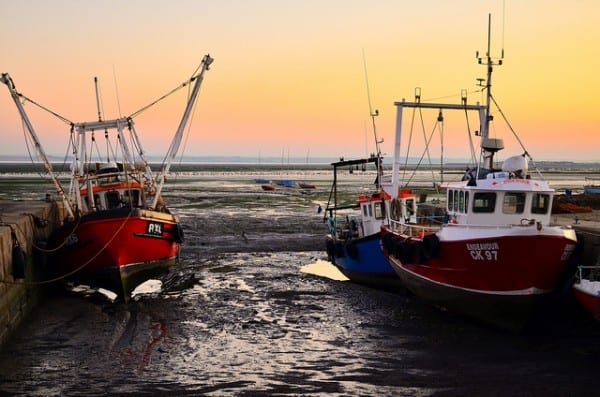
Photo by Garry Knight (flickr, CC BY 2.0)
Given the current situation in many of the countries touched by the 2010-2012 wave of revolutionary unrest, such a question may sound a tad anachronistic. However, just as the 2007-2009 global financial crisis is very much the stuff of the present for people in emigrant Morocco, so would it be mistaken to define the “Arab revolutions” as the ineffectual, and settled, stuff of the past. Indeed, not only are l-thawrat (the revolutions) still discussed in rural emigrant Morocco as recent, close, and unpredictably “alive” events, but, also, the debris of nearby revolutionary explosions are still very much present in people’s discussions and practices (Stoler 2008) – suggesting that l-thawrat/the revolutions, just as l-azma/the crisis, may also be inflecting local imaginations of the possible.
I came to realise this relatively recently, when I visited an old acquaintance in a village of the Moroccan Middle Atlas, a Berber woman in her early seventies. “Did you see us on TV?” she asked me once we had exchanged news on the health of respective relatives. “We can do things too, if we really want to”, she smiled at me. She was making reference to l-thawrat/the revolutions: we hadn’t met since their outset at the end of 2010. Her question surprised me at first, and not only for the time-lag between the events she was referring to and our conversation.
Never before had I heard her referring to the rest of the Middle East, or North Africa, let alone to the rest of Morocco, as “us”. Most importantly, maybe, never before had I heard her contemplating the possibility that that it would be l-barra/the outside watching, rather than the other way round.
As is the case also in the bus conversation I recount above, it seems as if both l-azma/the crisis and l-thawrat/the revolutions afford a curious change of perspective, where whom is observing, and the quality of what is being observed, can suddenly switch, even if sometimes only fleetingly so.
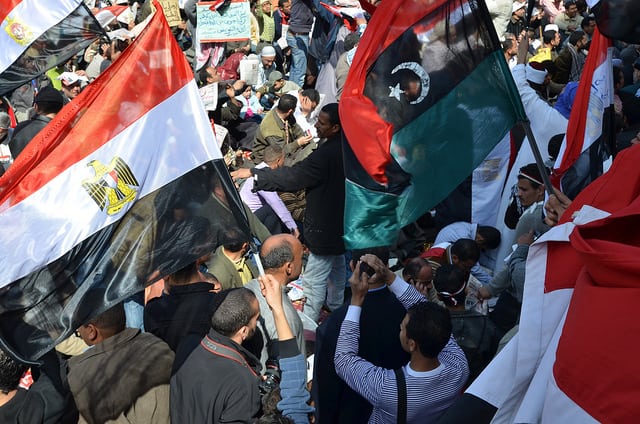
Photo by Ahmed Abd El-Fatah (flickr, CC BY-NC-SA 2.0)
I have encountered such changes of perspectives, and plasticity of horizons, at different scales, and in different spheres, of daily life in emigrant Morocco. For example, while having the conversation above with my elderly host, the woman’s son Mustafa, hearing us mention l-thawrat/the revolutions, joined in the conversation. He told me that just recently there had been a peaceful revolt in the village market, which resulted in small vendors like himself finally obtaining the right to move their (unlicensed) stalls from the tiny backstreets to the main square, where most of the bigger, more established stalls, stand on market day. Mustafa explained to me that the move had finally succeeded because “ykhafu” (they are frightened). The police, the local officials, and other local emissaries of the central government ever-present in Moroccan rural life, are showing an interest in the news too, Mustafa explained to me. “And now they know what can happen”, he added, pointing his thumb to the right, to the East of his country. Interestingly, and crucially I think, at no point in his story did Mustafa refer to the possibility of a Moroccan revolution, nor did he (or his mother for that matter) express any particular desire for it. However, the nearby thawrat/revolutions – together with their complex, multi-directional, aftermaths – unexpectedly emerged at the horizons of his actions in the narration, and suddenly seemed to contribute in fundamental ways to what Mustafa considered possible to do and think in the immediacy of his life.
The possible
It is ethnographic moments such as these that suggest to me that grand events such as “crisis” and “revolution” – and their uneven overlaps – are complexly interacting with the ways possibility (past, present, future) is imagined in North Africa. Major historic moments may not – particularly when somehow removed as is the case for Morocco – have immediate, ethnographically palpable, effects – especially if these effects are merely searched for, say, in statistical changes in transnational movement. These grand events, however, when approached as complex ethnographic concepts rather than simple transcendent “facts” (Roitman 2014), may be found to be operating in people’s lives in more subtle, and deeper, ways – penetrating, for example, those very horizons of possibility within which lives, actions, and thoughts unfold. My sense is that, in emigrant areas of Morocco, “Europe”, as a native concept, is being deeply affected by the conjuncture of “the outside” in crisis and “the inside” in upheaval. The subtle changes this peculiar historical conjuncture is producing in the imagination of the possible reveals how hope and bleakness are conditions ever latent on both shores.
Notes
This piece draws on my current research project, Crises and revolutions: migration and imagination across the Mediterranean, supported by a Leverhulme Trust Early Career Fellowship, and an ERC grant ERC-2013-CoG_617970. An early version of this piece was presented at the ZMO workshop Still in search of Europe? organised by Samuli Schielke and Bettina Gräf. Thank you to Dimitra Kofti for inviting me to participate in this conversation on crisis.
References
Elliot, Alice. 2012. Reckoning with the Outside: Emigration and the Imagination of Life in Central Morocco, Ph.D. dissertation. London: University College London.
_______2015. Paused Subjects: Waiting for Migration in North Africa. Time & Society.
Roitman, Janet. 2014. Anti-Crisis. London: Duke University Press.
Stoler, Ann. 2008. Imperial Debris. Cultural Anthropology 23(2):191–219.

